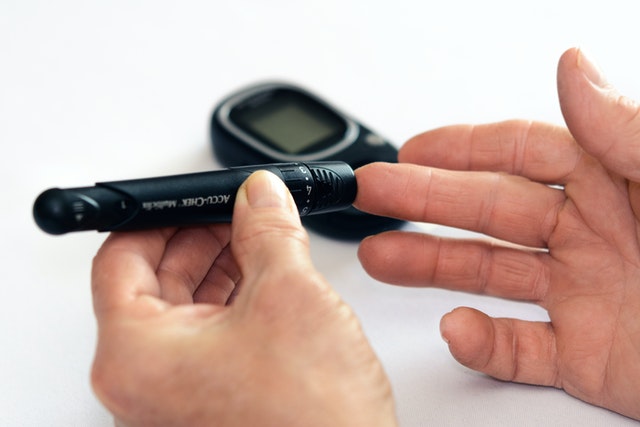Quick search
CTRL+K
Quick search
CTRL+K


Since 2010, the Global Law Experts annual awards have been celebrating excellence, innovation and performance across the legal communities from around the world.
posted 2 years ago
With the full entry into force of the MDR, the legal framework for European economic operators working with the Swiss market has undergone major changes. As there are still many doubts on the subject, this article intends to give an overview of the matter.
In 2002, the European Community entered into a Mutual Recognition Agreement with Switzerland that allowed certain types of products, including medical devices, to circulate freely on Community and Swiss territory. Since Directive 93/42/EC (‘MDD’) was in force at the time, the prerequisite for mutual recognition was obviously the conformity of the medical device with the Directive.
While the Agreement was in force, Switzerland was considered as if it were a Member State.
After the publication of the EU Reg. 2017/745 (“MDR”), a round table was opened between the EU and Switzerland in order to adapt the Agreement to the new regulatory framework, which, however, failed to reach a positive outcome.
Consequently, on 21 May 2021, the date on which the MDR took full effect and the MDD was repealed, the Mutual Recognition Agreement ceased to have effect with regard to medical devices.
As a result, Switzerland now only participates in the EU market for medical devices as a third country, just like China or the USA.
Likewise, Member States can no longer freely access the Swiss market as they did until 26 May 2021.
This resulted in some major effects such as:
In other words, from 26 May 2021, in order to be able to market medical devices on Swiss territory, a EU economic operator needs an authorised representative.
Likewise, a Swiss economic operator is required to appoint an authorised representative on EU territory.
In order to allow economic operators to gradually adapt to the aforementioned provisions, with the approval of the amending ordinance AS 2021 281, the Swiss Federal Council has set certain transitional periods for the appointment of the authorised representative by companies wishing to export medical devices to Switzerland.
With regard to the appointment of an authorised representative, Art. 104 of the OdMed (the Swiss law on medical devices) provides that an EU-based manufacturer or an EU authorised representative of a non-EU manufacturer must appoint an authorised representative in Switzerland.
The deadlines for compliance are as follows:
In addition to the appointment of an authorised representative, the following obligations also apply:
First of all, it should be noted that only economic operators based in Switzerland can register with Swissmedic.
Therefore, a non-Swiss manufacturer will have to ensure that it concludes a contract with an authorised representative based in Switzerland and that the latter is registered with Swissmedic (Swiss competent authority for medical devices).
In fact, in order to be able to lawfully place medical devices on the market in Switzerland, in accordance with Article 55 of the OdMed, Swiss manufacturers or authorised representatives of non-Swiss manufacturers and importers must register with Swissmedic within three months of the first placing of a device on the market.
The information to be included is that listed in Annex VI Part A point 1 EU-MDR, namely:
Swissmedic assigns each economic operator a CHRN (Swiss registration number), which is a unique identification number. This code is similar in function to the one that the European Commission assigns to economic operators within the EU market (so-called “SRN”).
In other words, any economic operator placing a medical device on the market after 26 May 2021 must register with Swissmedic within three months.
Distributors, on the other hand, do not have to register.
The only exception to this rule is the placing on the market of legacy medical devices (i.e. having a valid certificate of conformity issued pursuant to dir. 93/42/EC). Pursuant to Art. 101 OdMed, economic operators who placed legacy medical devices on the market (defined by the standard as ‘according to prior law’) for the first time before 26 May 2021 are not obliged to register with Swissmedic.
Obviously, this exclusion does not apply to economic operators who market medical devices with a certificate of conformity issued under the MDR.
How to register?
In order to register, the form accessible at the following link must be completed: https://www.swissmedic.ch/swissmedic/it/home.webcode.html?webcode=BW630_11_001defi_FO
Once the form has been filled out, it should be sent via e-mail only to the address [email protected] .
If a company holds several roles, a single form must be completed for each role. Swissmedic guarantees to process registration applications within 30 days.
The list of ‘actors’ (i.e. duly registered economic operators) is updated daily and can be accessed via the following link: https://opendata.swiss/it/dataset/mep401-chnr-actors
In the case of sale to Switzerland from the EU, the buyer will be considered an importer (subject to certain exceptions).
Art. 53(2) OdMed requires the importer to indicate on the device, its packaging or in a document accompanying the device its name, place of business and address at which it can be contacted.
It is essential to regulate all aspects of the importers’ obligations in the sales contract. These include, in addition to labelling requirements, the storage and transport of the product, cooperation with the competent authority, the authorised representative and the notified body.
Contractual regulation makes it possible to prevent the law from having to supplement the contract with unforeseen consequences in the event of litigation, especially if the applicable law is foreign.
At the moment, the obligation to notify medical devices to Swissmedic (Art. 108(2) and Art. 110 OdMed) has been postponed until a later date. However, you are advised to keep an eye on the forthcoming updates.
It is undeniable that the export of medical devices to Switzerland has become more complex as a result of the lack of an agreement between the European Union and Switzerland.
However, if the different subjective roles of economic operators are properly identified and updates are closely monitored, risks can be minimised.
To this end, it is advisable to:
Author


There are no results matching your search.
Resetposted 10 hours ago
posted 22 hours ago
posted 22 hours ago
posted 4 days ago
posted 4 days ago
posted 4 days ago
posted 5 days ago
posted 5 days ago
posted 5 days ago
posted 7 days ago
There are no results matching your search.
ResetFind the right Legal Expert for your business
Sign up for the latest legal briefings and news within Global Law Experts’ community, as well as a whole host of features, editorial and conference updates direct to your email inbox.
Naturally you can unsubscribe at any time.
Global Law Experts is dedicated to providing exceptional legal services to clients around the world. With a vast network of highly skilled and experienced lawyers, we are committed to delivering innovative and tailored solutions to meet the diverse needs of our clients in various jurisdictions.